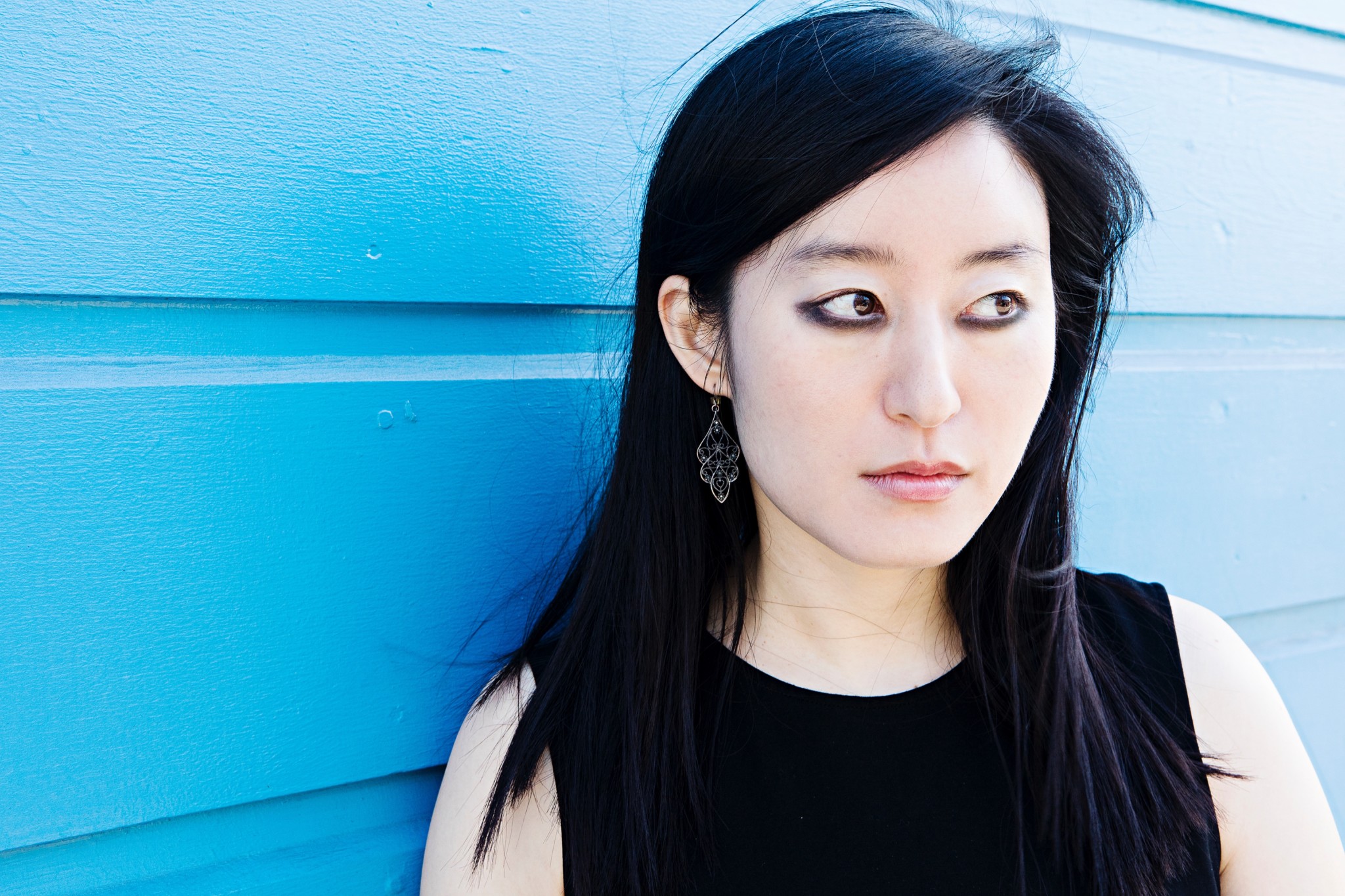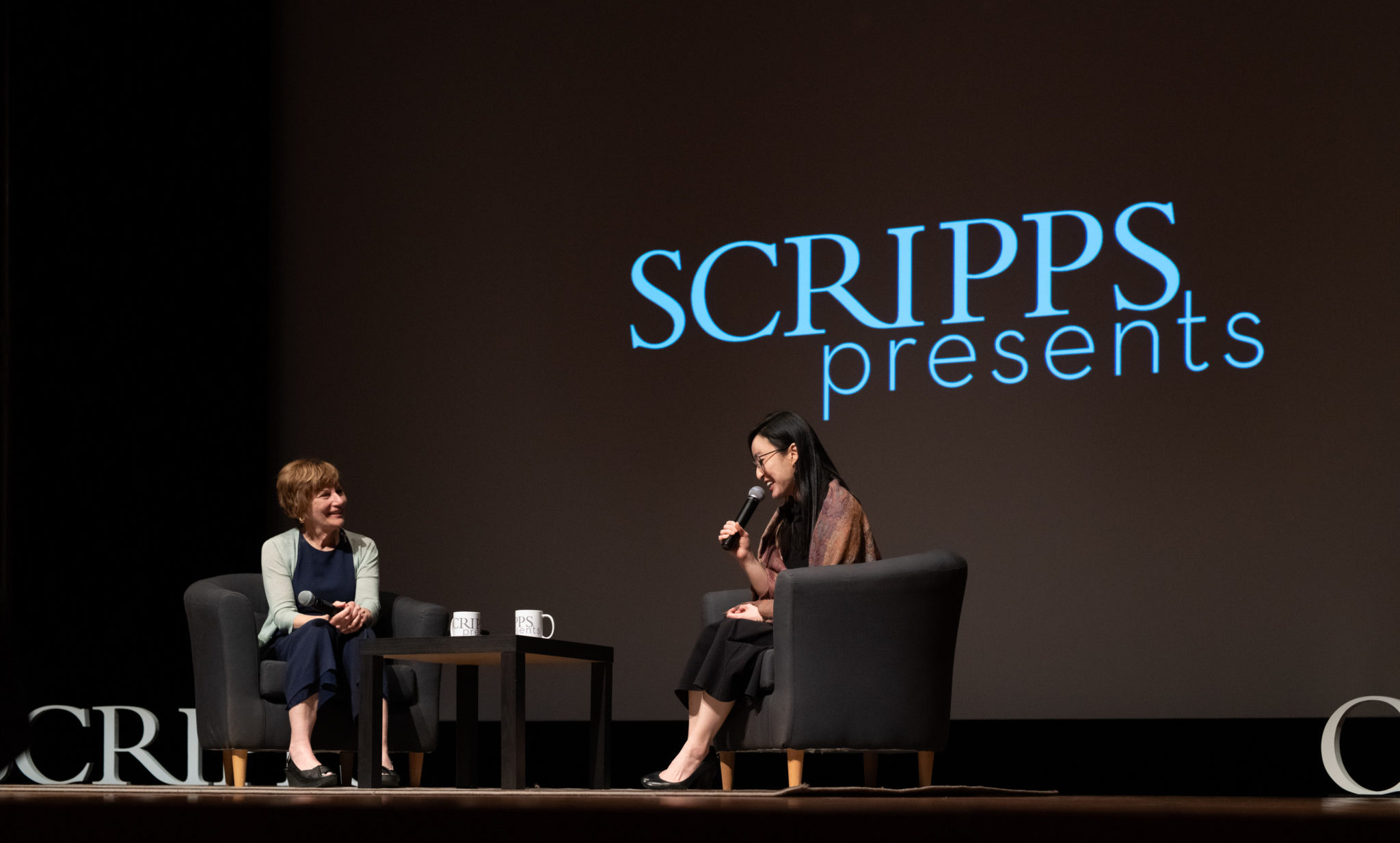On Monday evening, I sat enraptured in Mary Routt Chair of Writing R.O Kwon’s office as she wove meditations on faith and belief into our conversation for SCJ.
The acuteness of her observations were characteristic of someone who has thought incessantly about her relationship to both religion and writing. Kwon grew up in an extremely Christian household and planned to become a pastor until, at age 17, she experienced a loss of faith that transformed her life and altered her trajectory. “That was and is the pivotal loss of my life, around which my life has been organized and my life has been divided into a before and after,” she said.
This loss of faith fueled Kwon’s writing, and she knew that her first novel would deal with a similar experience to the one she underwent. “I think I knew from the start that would be what I’d write my first novel about,” she said. “And I think in some ways, really, that’s always what I’m writing about.”
It is easy to assume that writing is inherently cathartic, to assume that once the writer writes through an experience, they are freed of it, and subsequently have a weight lifted off of their shoulders. But for Kwon, writing her debut novel The Incendiaries resembled more of an extended grieving process than a therapeutic endeavor.
“I’m not sure that writing provides much catharsis to me if any,” she said. “I think this novel in a lot of ways might have been a prolonged act of grieving.” And then, with an introspection and eloquence we now know to be characteristic, she elaborated, saying “I think it’s entirely possible that I still love God; it’s just that I don’t think God is real.”
The novel centers around violence, faith, love and loss, and three narrators take turns revealing a hauntingly dark plot. They are Phoebe Lin, a student at an elite university hell-bent on preventing anyone from seeing her guilt over her mother’s death; Will Kendall, Phoebe’s boyfriend and a recent transfer to the university from a bible college; and John Leal, campus misfit turned convincing cult leader.
The genius of the novel lies in the fact that these topics are just as entangled at the end of the book as they were at the beginning. “People with no experience of God tend to think that leaving the faith would be liberation, a flight from guilt [or] rules, but what I couldn’t forget was the joy I’d known, loving Him,” Will muses when describing his life after losing his faith. It is explicitly clear that Kwon’s characters feel just as liberated as Kwon does by writing about it, which is to say, not at all.
Kwon is teaching a self-designed course at Scripps titled “Eye-Opening Writing.” She conceptualized the course out of a desire to remain grounded during the writing process and the idea of using description of the physical world as a tool to stay grounded. She was also intrigued by physical description as a feature of writing because of its hidden subjectivity. How one engages with the world around them, the things they notice and pay attention to, says a lot about who they are, she said.
Prior to her debut novel, Kwon established a name for herself in the literary community by taking on numerous writing projects, some of which were essays and articles. Kwon recalled that despite their shorter nature, she dedicated her undivided attention to them, as she saw any piece of writing as a completely absorbing task.
While Kwon appreciated how conducive artist’s residencies are to productive work, she also recognized the necessity of overcoming day-to-day temptations and distractions. When asked to elaborate on the importance of eliminating distractions, she said, “When I’m not sitting there working or thinking about my novel, am I wondering about the characters and really getting to hang out with them?”
Whether these moments took place at an artist’s residence or in the comforts of her own house, Kwon allowed for creative breakthroughs to occur by making room for them. She recognized the inevitability of stepping away from writing and making time for other activities such as spending time with friends. While discussing her favorite pastimes, she admitted, “I love karaoke. I love thinking about what I can pull off at karaoke. But that doesn’t necessarily feed my work the way that spending most of my time with language does.”
Dedicating ten years to a debut novel is no small feat, and in retrospect, Kwon realized that her passion for reading literature served as a significant driving force for her. Her writing aspirations are rooted in an individualized desire to produce works of similar quality to those she admired. She reflected on her unwavering love for reading everything, but specifically pointed out: “What I love to read most are novels. Those are my first love, and I think that love was a guide for me to knowing that novels were what I wanted to write.”
Yet, embarking on a decade-long endeavor to create The Incendiaries allowed Kwon to realize, “If I’m writing for myself, that actually has larger political implications. If I’m writing for myself as a reader, then that means I’m writing for a Korean American queer immigrant woman.”
She recognized that her identity as an author inherently plays a significant role in advocating for more diverse representation in storytelling. Kwon recalled a quote by Toni Morrison, one she saved on her computer desktop: “I stood at the border and claimed it as central and let the rest of the world come over to where I was.” Relating this back to her Scripps class, Kwon said, “I just want students to consider the possibility that people like [them] can be at the center of [their] stories and that [they] don’t have to center anyone else.”

Q&A with R.O. Kwon
SCJ: While writing The Incendiaries, was there anything that you learned about the writing process as a whole? Have you taken that into the classroom with your students at Scripps?
R.O. KWON: A very common question for writers is “Who are you writing for?” And I used to think that was an incredibly boring question. Because I always found writing to be such an absorbing task, I find it impossible to think about anyone else as a potential reader while I’m in the act of writing. If I’m writing for myself as a reader, that means I’m writing for a Korean American queer immigrant woman. This is not a body that has very often been centered in American letters as a reader. If I’m centering someone like me, Korean American readers, Asian American readers are going to be more likely to make sense of some of my allusions and my words.
SCJ: We noticed that the dialogue in The Incendiaries does not include quotation marks. Could you discuss the authorial choice behind this?
RK: There’s something about quotation marks that seems shouty, right? If you look at a page of any prose in a novel, they tend to jump out on the page. With quotation marks, there is an assumption of veracity; there’s an assumption of precision that I didn’t necessarily want. Especially since in a lot of ways, the novel is filtered through Will — what he’s imagining and what he can remember. That’s not necessarily going to be precise or perfect. And quoting to me, it felt, laid more claims to precision than felt truthful for the novel.
SCJ: You’ve talked about your personal loss of faith. While your debut book is not necessarily autobiographical, we’d love to hear about whether writing was cathartic for you. Did it help you reconcile, or think about, your experience through a different light?
RK: Spending so much time thinking about God and faith and reading the Bible and listening to religious music was, and is, a last way of being with a faith that I’m not sure I ever stopped loving. It’s just that I don’t believe in it. It’s entirely possible that grief like this doesn’t end, because, what is grief? Grief is a continuation of love, right? It’s actually like a version. It is love and when we come out of grief, it’s love for an object that’s become for one reason or another unavailable, and that love can last long past the time when the object is available.
SCJ: In what ways, if any, did your own literary criticism and book reviews influence your own writing when you were doing them concurrently?
RK: Writing reviews or criticism is an extension of reading. It’s like pushing the reading a little bit. It’s not even further. It’s like putting down some of the thoughts I have, while reading down on the page in a way that is, one hopes, legible to at least some others. And so, I would say reading is so utterly critical to writing.
SCJ: Before we wrap up, we wanted to talk a little about criticism as well as being a writer and a critic. Was there a moment when you became comfortable with sharing The Incendiaries with others? Are there strategies you have developed to receive feedback more productively?
RK: Sharing your work is always an act of great vulnerability. In any workshop that I’m teaching, my first priority is to do no harm. And so I ask people in a classroom to think about everything they say to be couched in an unsaid “in my opinion.” I ask people to focus their thoughts as questions, rather than as a declaration. One of the most valuable things about workshop, in addition to having time to write and read, is finding the readers who, when you read their critiques, you think, ‘Oh wow, yeah, this person really sees what I’m doing and what I’m trying to do.’ And I think coming away from trying to listen to criticism can be fruitful. Maybe just look for your readers. Because nothing anyone writes is going to please everyone, and what would that even look like? Art that pleases everyone, I think, arguably isn’t art.
Editor’s Note: This interview has been edited for length and clarity.
Last updated on March 2, 2020 at 1:46 p.m.
